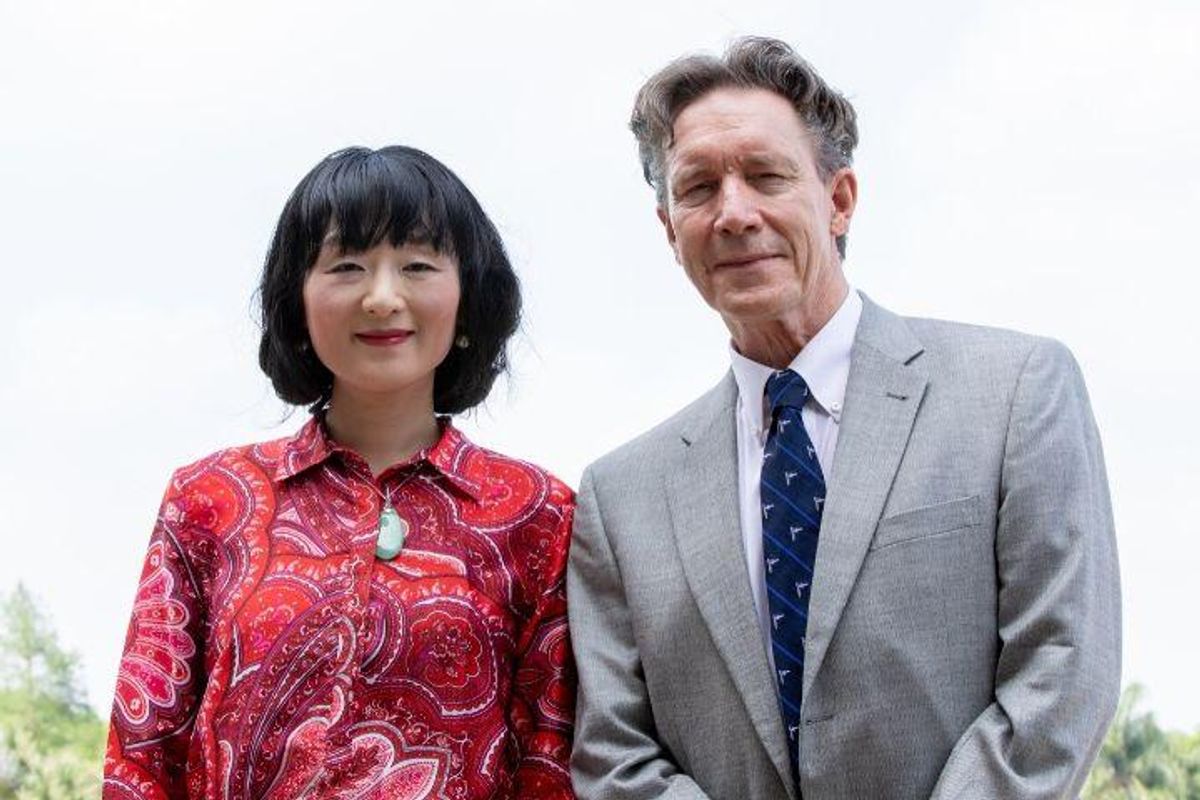Houston health care leader secures funding, milestones for latest initiatives across cancer, stroke, and more
news roundup
UTHealth Houston is making waves in many disciplines right now. From cancer to Alzheimer’s disease to stroke, the institution is improving outcomes for patients in new ways. Last week, UTHealth announced three exciting updates to its roster of accomplishments.
On October 8, UTHealth announced that it had received a $4.8 million grant from the National Cancer Institute, aimed at helping cancer survivors to continue their healing and enhancing primary care capacity. It will be put into action by UTHealth researchers working with eight community health centers around Texas that treat un- and underinsured patients. The initiative is called Project CASCADE, which stands for Community and Academic Synergy for Cancer Survivorship Care Delivery Enhancement.
“Project CASCADE focuses on how primary healthcare teams provide whole-person and coordinated care to underserved patients who have a history of cancer,” says Bijal Balasubramanian, professor of epidemiology and the Rockwell Distinguished Chair in Society and Health at UTHealth Houston School of Public Health, a multiple principal investigator of the study. “Primary care is uniquely suited to deliver whole-person and coordinated care for cancer survivors because, at its core, it prioritizes, personalizes and integrates healthcare for all conditions, not just the cancer.”
She continued by adding that 70 percent of cancer survivors live with other chronic conditions. The study will help by taking a holistic approach, rather than relegating people’s care to many different teams. Project CASCADE is one of only four National Cancer Institute-funded U01 grants that have been awarded to applicants focused on primary care for cancer survivors.
“Community health centers are the primary-care homes for patients who are underinsured or uninsured. In collaboration with community health center clinics, this study will develop a model of cancer survivorship care that can be disseminated and scaled up to be used across other health systems in Texas,” Balasubramanian says.
The intervention will use a designated care coordinator champion to oversee every aspect of patients’ health journey. Project ECHO will provide a backbone for treatment. That’s a telementoring strategy that improves primary care clinicians’ knowledge about post-cancer care, recognition and management of the effects of cancer and its treatments, and communication between oncologists and the primary care team. Project CASCADE is also a partnership between The University of Texas System institutions, including UT Southwestern Medical Center and The University of Texas MD Anderson Cancer Center.
The previous week, UTHealth made history by performing the first infusion in Houston of a newly FDA-approved drug, Kisunla, for the treatment of early symptomatic Alzheimer’s disease. The lucky recipient was 79-year-old Terrie Frankel. Though Kisunla is not a cure for Alzheimer’s, it has been noted to slow progress when administered early in the disease’s encroachment.
“Mrs. Frankel is the ideal patient for this treatment,” her doctor, David Hunter says. “We want to see patients as soon as they, or their family, notice the slightest trace of forgetfulness. The earlier the patient is in their Alzheimer’s disease, the more they benefit from treatments like Kisunla.”
UTHealth was one of the sites in the trial that charted the fact that Kisunla reduced amyloid plaques on average by 84 percent at 10 months after infusion. Frankel will receive her infusions monthly for the next 18 months, and her doctors will keep tabs on her progress with PET scans and use MRIs to scan for possible side effects. Next year, researchers will begin recruiting participants over the age of 55 with a family history of dementia, but no memory loss themselves, for a new trial, one of several currently working against Alzheimer’s that are taking place at UTHealth.
Stroke is no less of a worry to many patients. Last week, UTHealth received another grant that will improve the odds for patients who have had a stroke with the successful re-opening of a blocked vessel through endovascular surgery. The $2.5 million grant from the National Institute of Neurological Disorders and Stroke, part of the National Institutes of Health, will fund a five-year study that will include the creation of a machine-learning program that will be able to predict which stroke patients with large blood vessel blockages will benefit most from endovascular therapy.
The investigators will form a database of imaging and outcomes of patients whose blockages were successfully opened, called reperfusion, from three U.S. hospitals. This will allow them to identify clinical and imaging-based predictors of damage in the brain after reperfusion. From there, the deep-learning model will help clinicians to know which patients might go against the tenet that the sooner you treat a patient, the better.
“This is shaking our core of deciding who we treat, and when, and how, but also, how we are evaluating them? Our current methods of determining benefit with imaging are not good enough,” says principal investigator and associate professor in the Department of Neurology at McGovern Medical School at UTHealth Houston, Sunil Sheth.
And this is just some of the groundbreaking work taking place at UTHealth each day.
- University of Houston introduces institute to bring business solutions to health care industry ›
- University of Houston gets $2M to launch innovative transportation-focused cybersecurity center ›
- University of Houston-founded company secures $2.5M in NIH grant funding ›
- University of Houston plans to build new central campus innovation hub ›
- UTHealth Houston latest to break ground in Helix Park ›

 Wa Xian (left) research associate professor of biology and biochemistry, with Frank McKeon, professor of biology and biochemistry and director of the Somatic Stem Cell Center at UH. Photo via UH.edu
Wa Xian (left) research associate professor of biology and biochemistry, with Frank McKeon, professor of biology and biochemistry and director of the Somatic Stem Cell Center at UH. Photo via UH.edu Apple doubles down on Houston with new production facility, training center Photo courtesy Apple.
Apple doubles down on Houston with new production facility, training center Photo courtesy Apple.